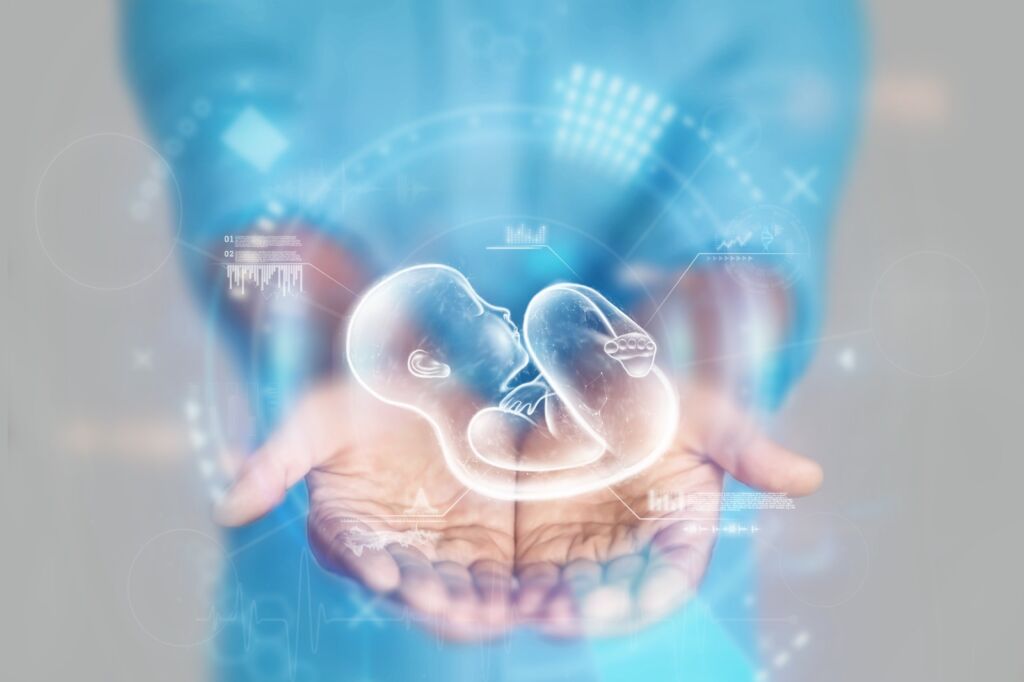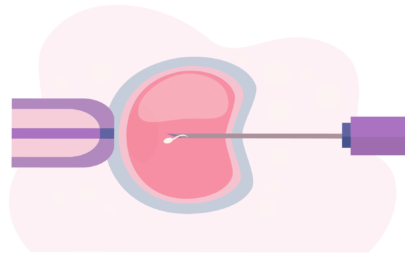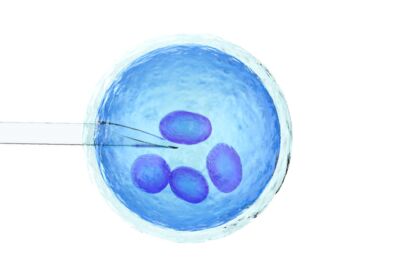
Have you been trying to conceive a baby for a long time and it has not been successful? Before you come to conclusions about the reasons and your medical conditions, take a few minutes to learn what infertility is.
What is infertility?
Infertility is the condition where a couple is not able to conceive a baby even after 12 months of trial. It is the failure to conceive despite having regular, unprotected sexual intercourse. Infertility is quite common and affects both men and women.
In India, around 27.5 million people, both male and female, face infertility, according to data from the Indian Society of Assisted Reproduction. Infertility affects 1 in every 5 people around the world. Infertility does not mean that you are sterile and unable to conceive. There are many treatments and medical options available to address infertility. In this blog, we will explore everything related to infertility to give you a complete understanding.
What are the different types of infertility?
Infertility can be broadly differentiated into three types.
- Primary
This type of infertility occurs when a couple has never been pregnant or is unable to get pregnant even after a trial of one year of unprotected sexual intercourse.
- Secondary
When a couple finds it difficult to conceive after having one or more babies,
- Unexplained infertility
The reason for infertility remains unknown, even after testing.
What are the causes of infertility?
Some factors are common to both men and women, while others are unique to each gender. Some of the common factors that affect both are:
- Age: As the age of the couple increases, the chances of conceiving decrease. For women during the late 30s and 40s, infertility is a common case, and for men, infertility is common in the 50s.
- Alcohol consumption
- Exposure to chemicals like pesticides, lead, et cetera
- Sexually transmitted diseases (STI)
- Over exercising
- Smoking and tobacco products
- Treatments like radiation therapy or chemotherapy
- Substance abuse
- Having obesity or being underweight
- Chronic conditions or diseases
What are the Infertility causes in women?
Ovulation disorders are one of the main reasons for infertility in women. Ovulation is the process in which the ovary releases an egg to meet the sperm for fertilization, which grows into the baby. There are several factors that lead to infertility in women. Some of them are:
- Endometriosis
- PCOS (polycystic ovary syndrome)
- Uterine fibroids, or uterine polyps
- Thyroid diseases
- Kidney diseases
- Genetic or chromosomal diseases
- Sexual dysfunction
- Infrequent or absent menstrual periods
- Primary ovarian insufficiency or poor quality
What are the causes of infertility in men?
Problems involved with the shape, moment, or amount of sperm are one of the main reasons for infertility in men. Some other causes include:
- Enlarged veins (varicocele) in your scrotum, the sac that holds your testicles
- Cystic fibrosis
- Chromosomal disorders
- High heat exposure to your testicles from the clothing
- Frequent use of hot tubs and saunas and holding laptops or heating pads near you
- Injury to the scrotum or testicles
- Low testosterone
- Sexual dysfunction such as erectile dysfunction, anejaculation, premature ejaculation, or retrograde ejaculation
What are the symptoms of infertility?
The main symptom is the failure to conceive even after 12 months of trying. The symptoms may vary according to each individual and their medical conditions, but here is a list of common symptoms seen in both men and women.
What are the signs of infertility in women?
- Irregular periods, no periods, or abnormal periods
- Painful periods, back pain, pelvic pain, and cramping
- Loss of hair or change in hair growth
- Fluctuation in weight
- Painful sex
What are the signs of infertility in men?
- Changes in hair growth
- Reduced sexual drive
- Penile disorders or issues with ejaculation
- Pen lump or spelling in testicles
- Small, firm testicles
If you notice symptoms that might indicate infertility, see your nearest doctor. Early diagnosis and treatment can address and solve many infertility issues and increase your chances of becoming pregnant.
Diagnosis of infertility
Infertility is different for each person. There are a lot of factors involved in determining it. However, don’t worry—infertility is quite common among couples, and many still achieve their dream of becoming parents. There are several tests and examinations available to identify the specific condition of each couple.
What are the infertility tests for women?
- Pelvic exam
- Blood test
- Transvaginal ultrasound
- Hysteroscopy
- Saline sonohysterogram (SIS)
- Sono-hysterosalpingography (HSG)
- X-ray hysterosalpingography (HSG)
- Laparoscopy
What are the infertility tests for men?
- Semen analysis
- Blood test
- Scrotal ultrasound
- Chlamydia test
Treatment for infertility
The treatment for infertility depends on the specific conditions of the partners, varying from person to person. It may be that only one partner requires treatment, or sometimes both might need it. A specialist can provide the best treatment plan after a thorough diagnosis. In some cases, simple lifestyle changes and proper timing of intercourse can significantly increase the chances of pregnancy. However, other times, treatments may include medication, surgery, or a combination of all these. The treatments for infertility can be diverse and tailored to each couple’s unique situation.
- Lifestyle modification
If your infertility case isn’t too severe, it can be improved and treated by making some lifestyle changes, such as gaining or losing weight, quitting smoking and drug use, and improving overall health conditions. Even something as small as changing your diet can increase your chances of getting pregnant. Check out our blog on fertility foods that help boost your fertility to learn more.
- Medications
For women, there are fertility drugs that help stimulate the ovaries. For men, fertility drugs can increase testosterone and hormone levels, addressing erectile dysfunction and helping maintain erections during sex.
- Surgery
There are surgical procedures that can enhance your chances of pregnancy. For women, these procedures include opening up fallopian tubes, removing polyps, treating endometriosis, fibroids, and scar tissue. For men, procedures like correcting epididymal blockages and varicocele surgeries can be beneficial.
- Assisted reproduction
In some complicated cases of infertility, couples might need assisted reproductive technology (ART) to conceive. This fertility treatment involves healthcare providers helping to fertilize the egg outside the body, significantly increasing the chances of pregnancy. Different ART treatments include:
- IVF (In Vitro Fertilization): IVF involves retrieving eggs from the mother’s ovaries and placing them in a petri dish with sperm. The fertilized egg is then transferred back into the mother’s uterus. To learn more about IVF, check out our blog for a detailed step-by-step guide to the process.
- ICSI (Intracytoplasmic Sperm Injection): ICSI is a procedure performed as part of the IVF process. It involves directly injecting a single sperm into a mature egg, which is then transferred back into the uterus. This method holds the highest chance of pregnancy.
- IUI (Intrauterine Insemination): Also known as artificial insemination, IUI uses a long, thin tube to directly place sperm into the uterus.
- Assisted Hatching:
In this process, the outer layer of the embryo is opened to make it easier for the embryo to attach to the uterine lining. - Third-Party Assistance:
This method involves the use of donor eggs, donor sperm, donor embryos, or even a surrogate or gestational carrier for the birth of a baby. It is commonly used by couples with very complicated infertility issues.
When should you seek help for fertility?
Your age is a major factor in fertility. If you are 35 or younger and unable to conceive after one year of trying, you should seek help. If you are between 35 and 40 and have been trying for six months without success, it’s time to consult a doctor. For those around 40, it’s advisable to consult a doctor even earlier, as your chances of conceiving decrease significantly with age. Additionally, if you have a medical condition that poses risks to your fertility, you should seek help sooner.
If you have had cancer treatment or suspect you might have had an STI, it’s important to consult a doctor for a diagnosis. Your gynecologist or physician can refer you to a urologist or endocrinologist for a thorough fertility diagnosis and treatment.
Choosing a clinic
Now that you understand what infertility is, it’s time to seek expert help. Head to the best infertility clinic in Kerala, Credence IVF. Credence boasts globally recognized and experienced infertility specialists, state-of-the-art facilities, the latest innovative technology, and all of this at an affordable price.

With over 20 years of experience and one of the highest success rates in Kerala, Credence ensures you receive the best infertility treatments to help you achieve your dream of parenthood. Contact us today to create a customized treatment plan tailored just for you.



